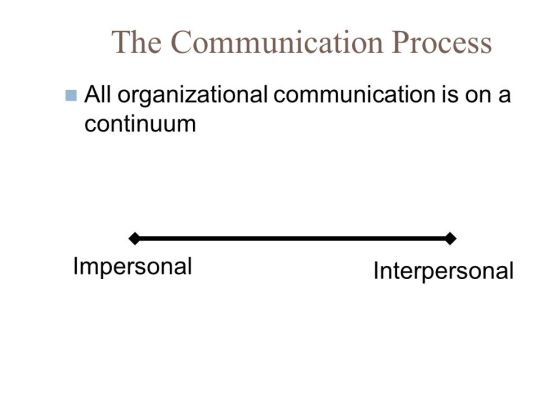Text
Let’s Just Pretend Like Clothes Don’t Matter
Writer Thourlby gave ten messages that clothing sends, and they are as follows.
1. Economic level
2. Education level
3. Trustworthiness
4. Social Position
5. Level of sophistication
6. Economic background
7. Social background
8. Educational background
9. Level of success
10. Moral character
Clothes apparently send a lot of different messages! Maybe this is why women struggle so much when they pick out on a outfit. Out of all the messages that clothing send, I feel as if American society relies most on moral character and economic background when they’re making a judgement about someone.
Many conservative or older people often look over the clothing of someone to determine their moral compass. When I’m around my Southern family, I’m much more likely to leave my ripped jeans at home and swap my nose ring for a stud. For some reason to all of them, they make judgements based on my life for the fact that I like how certain clothing items look on me. Another example of this is the job interview constant dilemma. When a man is getting ready for a job interview, the guideline for what to wear is pretty clean cut. However, for women you have to go through some for real trials to see what is ‘appropriate.’ You don’t want to send the wrong message, and it’s nearly impossible to tailor your outfit perfectly to fit this unattainable memo.
Clothing also sends a lot of messages about your economic status. Seeing someone walk around in some ratty clothing with tears and a smell that follows them sends a message about their ability to spend extra cash on their appearance or other basic necessities.
However, A different message is sent from those who really value brand names and keeping a tailored appearance. Someone with done nails, a designer purse, and a stylish outfit obviously prioritizes using this extra money to show off. By highlighting their brands in their appearance, it says a lot about how they want people to think of them.
In conclusion, we look a bit too far in to what message clothing sends in America in my opinion. Judging someones entire background or moral character off of an outfit is a bit messed up in my book.
0 notes
Text
The Guide to Somewhat Appropriate Disclosure
There’s a reason it’s called word VOMIT. After spilling a secret that’s especially embarrassing to someone with a mixed reaction, I kind of want to crawl up in a hole and die. So, for all the past mistakes I’ve made, I’m creating a guide to somewhat appropriate disclosure. Next time I’m in the proximity of a coworker, a random classmate. or my high school United States history teacher (Sorry, Mr. Owens) I can pull this out and check my actions.
Step 1: Remember that disclosure doesn’t always lead to liking!
I’ve learned this the hard way, and fortunately someone did a study to confirm the worst of my suspicions. One of the only ways you can expect satisfying returning of self-disclosure is when it is returned. Thank you Dindia, circa 2000. The basic breaking down of this rule is that when you show the horrible dark side of your past, you have to be telling this to someone who will hopefully A) Understand B) Respond with something even MORE personal C) Worship you for the goddess that you are and put every awkward interaction behind you!
youtube
Sorry, that’s just me waking up from the dream that something like that could ever happen. The moral of step one is to choose wisely who to spill your guts to.
Step 2: Timing!
Plan well when you’re exposing yourself. Timing can really be the kicker to this issue. Make sure that your self-disclosure is in an appropriate time and place. When you’re on the beach staring into the distance and you tell your lover how you’ve never felt appreciated, the curtain falls and you’ve stolen the show. Or, you tell your partner that you still have feelings for your ex on your one year anniversary. Hmm...which would you prefer? Also, make sure your disclosure is in a private setting versus someone’s Facebook wall, according to Bazarova in a 2012 study. Breaking up with someone by tweeting at them sets you up for immediate failure of getting a future partner when they hear or see what you did because trust me, they will find it one day.
Step 3: Trust is a Must
“Hey, I know we’ve only talked a few times, but I just feel like I can trust you.”
NO. Back away slowly. You almost just fell in to the trap of knowing more about someone than their name and thinking you can tell them anything.
This is a trap. As Shirley states, it’s “for the sake of sake of self-protection.” If you trust someone completely, as in gone through and see how they’ve treated the people around them and their secrets, you can consider expressing your personal information to them. But also give it a six month trial period, investigated twice a day, and don’t hesitate to ask your doctor about any known side effects. After all, this could save your social life or end it forever. The choice is yours.

This has been a comprehensive guide on how to avoid some of the easiest mistakes to make regarding disclosure and self-disclosure. I wish anyone reading this guide the best of luck when they try to stop the never ending enigma that is word vomit.
0 notes
Text
Instagram 2.0
You’ve heard of Instagram, now imagine another version of Instagram that’s filled with juicy gossip, nudes, secrets, ONLY connected with the people who you REALLY want to see that side of you.
Or that girl that you’ve talked to twice who you went to high school with.
The wonderful creation I’m referring to is Finsta! Finsta is like a second private account opposed to your normal main account. The regular account is meant to house edited and perfect pictures of you and your life. Finsta shows you crying and a long detailed caption about your ex, pictures of your nose zoomed in really far, basically anything you wouldn’t want a general person to see about you and think “wow, she’s kinda crazy.”
https://www.huffingtonpost.com/entry/what-the-finsta-the-darker-world-of-teenagers-and_us_57eb9e03e4b07f20daa0fefb
I created my Finsta during my junior year of high school. It was there that I posted rants about my life and semi-unattractive photos of me and my friends. It was innocent. For me, it was more about fun and less about fueling gossip or insecurities. However, overtime it kind of turned in to a pit of self despair and first world problems.
According to Derks, communicators are generally more expressive with emotion in social media than in real life interactions. Judging based off of the date this was cited, I don’t think Finsta was exactly flourishing in 2008. However, I stand with the expert on this. Scrolling through my Finsta feed, I find out more about a girI worked with a few times than I could ever imagine.


Emotions experienced online are definitely more intense. Finsta challenges that to the next level regarding disclosure on an extremely person level often to pretty much complete strangers.
Yet, it’s a way to bond!
I keep track of many different friend groups from all of spans of life on social media. My friend from a Summer camp I worked at posting about coming out on her Finsta to me then was a positive. I don’t get to see her much at all, so her posting such an intimate part of her life there helped me to feel even more connected to her, no matter the distance between us and how few times a year we are able to see each other.
But, Finsta can also be negative for the same reason. I had a falling out with an old best friend of mine, and it wasn’t fun for her to express feelings about another mutual friend of ours in such a personal way. Knowing both sides to the story is a good thing, but blatantly talking crap makes it hard to not pick sides. I haven’t seen her in months after she moved to college, and her doing that only made us more distant. Even when we communicate, Finsta is like a separate preserved entity that holds one side of your personality and that is then ignored.
Social media has taken off in the past 15 or so years, and it’s interesting to think of where it will go. I can’t see something like Finsta lasting, and it’ll be the day when I can look back and go over past things I’ve said like a preserved Facebook post from my ancient times of 2014.

0 notes
Text
Intimate Distance and Hook Up Culture
Personal space is something that I can definitely appreciate in my day to day life, even while being in a romantic relationship. For me, personal space is my way of keeping a hold on to my control. When someone gets too close and I don’t expect it, I can kind of freak.
Last Winter, I was sexually assaulted. I kinda liked my assaulter which is the hardest part of it all. I was 17, and my older manager showed interest in me. I was (and am) insecure (especially then) about almost everything in my life. My appearance, job performance, relationships, friendships, you name it. Everything that happened with him was me being interested at first, then kind of sucked in where I couldn’t end things without there being some consequences in my work place.
I was in a freezer getting some food when it happened. He came in swiftly, it was over as quickly as it began. My other manager, Jennie, greeted me on the other side of the freezer when it was over. She had no idea what happened, and when she asked if I was okay (probably judging by my red face and hurried breathing) I replied, “Yeah, of course. Thank you!” I thought no one would believe me.
Trying to move on, given not in the healthiest of ways, the next Summer was a big whirlwind of trying to be with anyone who showed interest in me, which is where my idea of hook up culture versus the intimate distance comes in to play. Intimate distance is a personal distance in the study or proxemics. According to Edward Hall, intimate distance is described as skin to skin contact, ranging up to about 18 inches. So what happens when you have this contact with someone you just met? Hall also described this closeness as something you generally only trust someone. However, how does another need take this one over. Can it?

I met this guy named Jackson sort of through a friend. We went to High School together, but he graduated in the class above me. He moved to Missouri to study Journalism, and judging off of stalking his Instagram for several hours at a time, he was attractive to me. One Summer’s night, my drunk alter ego (sorry, Mom) took over and messaged him. Let’s call her Jo. So, Jo takes over my brain and sends Jackson the classic, hey we should hook up message. I was fading in and out at this moment and mad at Jo for sending this message. Drunk me (Jo) didn’t give a care what I did, but sober me (Jordan) didn’t agree with the Urban Dictionary definition of hooking up, which is “ to have sex with someone.” My definition of hooking up with someone is generally considered making out with someone and then losing interest slowly and cuddling with them, also known as disappointment.
Sober me wakes up to him agreeing, and we actually meet. We hung out once, and it involved us awkwardly dancing around the fact that we were supposed to hook up and actually just getting to know each other. He set up a hammock, and we awkwardly laid towards each other as we discussed our zodiac signs. I think we were touching legs and smiling at each other, and we were in an “intimate space.” I didn’t know this dude! My leg was sending nerves up to anything that would respond, and when the topic of hooking up came up we decided to leave and go back to his place.
There, he made me food and we laid in his bed while we kissed I think 5 times, watched some show, and agreed this wasn’t for us. We were both awkward virgins, he walked me out to my car, and as soon as he couldn’t hear me I started screaming. “Fuck! Why am I so awkward?!?”
Intimate distance doesn’t always have to be intimate, and I learned this is many different ways. What I think is most important to intimate distance is the trust you have with yourself. I am constantly finding myself, and as long as the actions done within my personal bubble are making me happy, then so be it.
God, I just wrote to my comm class about how I also lost my virginity to a random dude. Jackson, if you’re reading this, I’m sorry. Also try texting me back sooner next time.

For now enjoy this picture of my best friend saving hammock-ing for me from bad memories.
0 notes
Text
Nurturing Culture in an Nontraditional Family Setting
When I was in third grade my parents divorced, which is a somewhat usual occurrence for an American (child) to go through. The kicker is that unlike most American families, my parents are both women. I ended up with a mostly normal childhood. I had a family that cared for me and showed me a lot of love, and I was lucky for that.
Previously in a group conversation, I decided with my group members that American society is a more of an achievement culture. Achievement culture societies are defined as societies that place a high value on material success and a focuses on the task at hand. Nurturing cultures on the other hand describe a culture that regards support of relationships as an especially important goal (Alder, Rosenfeld and Proctor II, 48).
Women are generally considered more nurturing by generalized personality traits and my parents would definitely say that having successful relationships is an important goal. My mothers have always told me how important it is to voice your opinions and how important it is to set time aside to listen to what others have to say. It is also important to show respect and value the ideas of others.
Achievement culture tends to focus strongly on material success. A nurturing culture values helping others whereas, achievement culture values looking out for yourself and focusing on the task at hand. Having a successful job is a goal that most Americans strive for and with achievement culture it makes it clear that most jobs do want to outperform other companies. Nurturing culture would want to help and see what they could accomplish together.
The women I grew up with definitely were more nurturing, which is a stark contrast to the achievement culture that America has.
While I appreciate all that they’ve done for me, I wonder how I would have turned out in a more nurture based society, and how a different idea of parenting would have changed me.

How I could be now ^^

Versus the real me ^^
0 notes
Text
Is a French Baguette™ okay?
Hello, my name is Jordan, and I’ve been working as a cashier for 11 months.
*voices in unison* Hi, Jordan.
To the modern man, Panera Bread is just a stop on the way home to feed their family, or an overpriced food source that every teenage girl loves to indulge in. They get their “broccoli cheese soup” and their “chipOATle chicken” and go about their daily lives while I stay and work there until 11 or 12.
As soon as I saw the Impersonal-Interpersonal Continuum, I immediately started thinking about my job and the interactions I have every day with the people who come in to my store. For most of who I serve, the interaction is to them nothing but Impersonal. However, good ol’ Mother Bread wants us to show the three C’s with the people at our Bakery Cafe: Connectedness, Caring, and Chicken (okay, that third one really isn’t it chicken but let’s be honest I don’t know what they are and we serve enough damn chicken.) The one my position focuses on primarily is Connectedness.

To Panera, this is the connectedness they mean:
youtube
Yes, those friendly and shining faces could someday be CEO’s of the company.
Every interaction I have is supposed to be a positive one that leaves my customer being satisfied, but most of the people I serve could care less. It’s hard to find a balance in the continuum when your customer is on one end and I’m stuck there completely on the other, pushing and getting nowhere.
One of my favorite customers is named Ralph. He comes in almost every single day to pick up a french baguette for whomever he gets it for. The thing is, we have some baguettes we package up to be sold, and he likes the ones that are abnormally light, so I’ll usually go in to our back bakery racks to grab him one.
I look forward to our interactions the most because he’s funny, and makes an attempt to make me smile. I anticipate his face looking on to the baguettes, and I can tell whether or not they have met his standards. He’s seen me when it’s just us two up front, he’s seen me when we have a huge line and three other people helping me to ring up customers. However, it was only about four months in to my time working there that we began to actually talk. Why did we wait so long? I saw this man nearly every time that I worked, all my managers know him by name, and vice versa.
On the continuum, our interactions fall near the middle, but closer to the interpersonal end of things. Him, and a select handful of other customers are the ones that help relieve me in what feels like a never ending black hole of food service. I just wish there were a few more like them.
1 note
·
View note